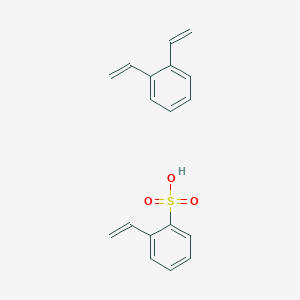-
Categories
-
Pharmaceutical Intermediates
-
Active Pharmaceutical Ingredients
-
Food Additives
- Industrial Coatings
- Agrochemicals
- Dyes and Pigments
- Surfactant
- Flavors and Fragrances
- Chemical Reagents
- Catalyst and Auxiliary
- Natural Products
- Inorganic Chemistry
-
Organic Chemistry
-
Biochemical Engineering
- Analytical Chemistry
-
Cosmetic Ingredient
- Water Treatment Chemical
-
Pharmaceutical Intermediates
Promotion
ECHEMI Mall
Wholesale
Weekly Price
Exhibition
News
-
Trade Service
3,6-Dioxabicyclo[3.
1.
0]hexane, also known as Dibenzo-p-dioxins (DDDs), is a toxic, persistent, and ubiquitous environmental pollutant.
Due to its hazardous nature, the production process of DDDs must be carefully monitored and controlled to minimize the potential for environmental contamination and human exposure.
In this article, we will take a detailed look at the production process of DDDs in the chemical industry.
- Raw Material Preparation
The production of DDDs typically begins with the preparation of raw materials.
The raw materials used in the production of DDDs are typically aromatic hydrocarbons, such as benzene or toluene.
These raw materials are reacted with oxygen in the presence of a catalyst, such as copper, to produce DDDs.
The reaction is typically carried out in a jar or tower reactor, with the raw materials being fed into the reactor at the bottom and the DDDs being collected at the top.
The reaction is carefully monitored to ensure that it is proceeding at an appropriate rate, and adjustments may be made to the reaction conditions to optimize the yield of DDDs.
- Purification
After the DDDs have been produced, they typically require purification to remove any impurities that may have been introduced during the reaction.
This may involve the use of chemical treatments, such as acid washing, or physical methods, such as distillation.
The purified DDDs are then typically dried and ground to a fine powder to make them easier to handle and store.
The purified DDDs may then be packaged and shipped to other facilities for further processing or use.
- Uses
DDDs have a wide range of uses in the chemical industry, including as additives in lubricants, plastics, and other materials.
They may also be used in the production of pigments, dyes, and other chemical products.
The use of DDDs in these applications can help to improve the performance and properties of the final products.
However, due to the toxic and persistent nature of DDDs, careful attention must be paid to their handling and disposal to minimize the potential for environmental contamination and human exposure.
- Occupational Safety
DDDs are known to be toxic to human health, and exposure to high levels of DDDs can cause serious health problems, such as cancer and other diseases.
Therefore, it is essential that workers in the chemical industry who handle DDDs take appropriate precautions to protect themselves from exposure.
Workers who handle DDDs should wear appropriate personal protective equipment, such as gloves, respirators, and protective clothing.
They should also follow proper handling and storage procedures to minimize the potential for exposure.
In addition, facilities that handle DDDs should have appropriate safety procedures in place, including emergency response plans in case of accidents or spills.
Regular training and safety drills should be conducted to ensure that workers are prepared to handle emergencies.
- Environmental Considerations
DDDs are known to be persistent in the environment, meaning that they do not break down easily and can remain in the environment for long periods of time.
This can lead to the accumulation of DDDs in the food chain, where they can bioaccumulate and become more concentrated as they move up the food chain.
Therefore, it is essential that the production of DDDs be carried out in a manner that minimizes the potential for environmental contamination.
This can be achieved through the careful handling and disposal of DDDs, as well as the implementation of appropriate waste management practices.
In addition, facilities that handle DDDs should have appropriate waste management practices in place to ensure that any waste products are properly







